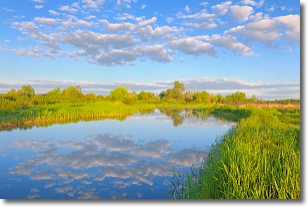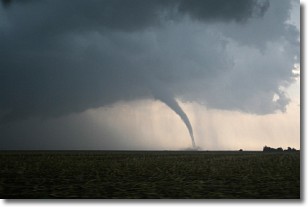Weather Alert in Maryland
Flood Warning issued May 13 at 4:09PM EDT until May 15 at 10:15AM EDT by NWS Baltimore MD/Washington DC
AREAS AFFECTED: Allegany, MD; Hampshire, WV; Mineral, WV
DESCRIPTION: ...The Flood Warning continues for the following rivers in West Virginia...Maryland... North Branch Potomac River Near Cumberland affecting Mineral, Hampshire and Allegany Counties. Potomac River at Paw Paw affecting Morgan, Hampshire and Allegany Counties. Opequon Creek near Martinsburg affecting Berkeley and Jefferson Counties. For the North Branch Potomac River...including Kitzmiller, Luke, Cumberland...Moderate flooding is forecast. For the Potomac River...including Paw Paw, Hancock, Shepherdstown, Harpers Ferry, Point of Rocks, Edwards Ferry, Little Falls... Moderate flooding is forecast. For the Opequon Creek...including Martinsburg...Minor flooding is forecast. * WHAT...Moderate flooding is forecast. * WHERE...North Branch Potomac River near Cumberland. * WHEN...From this evening to late Thursday morning. * IMPACTS...At 22.0 feet, Water reaches a substation in Wiley Ford, West Virginia. Water also approaches an outbuilding in Wiley Ford, and portions of Kelly Road in Cumberland and Canal Road in North Branch. * ADDITIONAL DETAILS... - At 3:45 PM EDT Tuesday the stage was 10.2 feet, or 6.8 feet below flood stage. - Forecast...The river will rise above flood stage late this evening to 22.5 feet tomorrow morning. It will then fall to flood stage tomorrow evening. It will rise to 17.6 feet early Thursday morning. It will then fall below flood stage early Thursday morning. - Flood stage is 17.0 feet. - Flood History...This crest compares to a previous crest of 22.6 feet on 09/07/1996. - Please visit www.weather.gov/safety/flood for flood safety and preparedness information
INSTRUCTION: Turn around, don't drown when encountering flooded roads. Most flood deaths occur in vehicles. Motorists should not attempt to drive around barricades or drive cars through flooded areas. Additional information is available at www.weather.gov/washington or www.weather.gov/baltimore. The next statement will be issued late tonight at 415 AM EDT.
Want more detail? Get the Complete 7 Day and Night Detailed Forecast!
Current U.S. National Radar--Current
The Current National Weather Radar is shown below with a UTC Time (subtract 5 hours from UTC to get Eastern Time).

National Weather Forecast--Current
The Current National Weather Forecast and National Weather Map are shown below.

National Weather Forecast for Tomorrow
Tomorrow National Weather Forecast and Tomorrow National Weather Map are show below.

North America Water Vapor (Moisture)
This map shows recent moisture content over North America. Bright and colored areas show high moisture (ie, clouds); brown indicates very little moisture present; black indicates no moisture.

Weather Topic: What are Stratocumulus Clouds?
Home - Education - Cloud Types - Stratocumulus Clouds
 Next Topic: Stratus Clouds
Next Topic: Stratus Clouds
Stratocumulus clouds are similar to altocumulus clouds in their
fluffy appearance, but have a slightly darker shade due to their additional mass.
A good way to distinguish the two cloud types is to hold your hand out and measure
the size of an individual cloud; if it is the size of your thumb it is generally
an altocumulus cloud, if it is the size of your hand it is generally a
stratocumulus cloud.
It is uncommon for stratocumulus clouds to produce precipitation, but if they do
it is usually a light rain or snow.
Next Topic: Stratus Clouds
Weather Topic: What are Wall Clouds?
Home - Education - Cloud Types - Wall Clouds
 Next Topic: Altocumulus Clouds
Next Topic: Altocumulus Clouds
A wall cloud forms underneath the base of a cumulonimbus cloud,
and can be a hotbed for deadly tornadoes.
Wall clouds are formed by air flowing into the cumulonimbus clouds, which can
result in the wall cloud descending from the base of the cumulonimbus cloud, or
rising fractus clouds which join to the base of the storm cloud as the wall cloud
takes shape.
Wall clouds can be very large, and in the Northern Hemisphere they generally
form at the southern edge of cumulonimbus clouds.
Next Topic: Altocumulus Clouds
Current conditions powered by WeatherAPI.com




